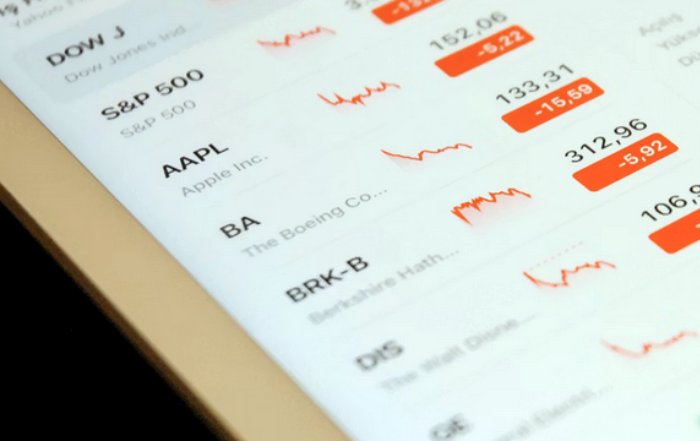How Consumer Expectations Are Reshaping Banking Relationships in 2026
A Customer-Led Financial System
By 2026, the balance of power in global banking has shifted decisively toward the customer, and what began as a digital convenience story in the early 2020s has matured into a structural redefinition of how individuals and businesses expect to interact with financial institutions across North America, Europe, Asia, Africa, and Latin America. Consumers now benchmark their everyday banking experience not against the best branch in their city, but against the most seamless digital interactions they receive from leading technology platforms, and this recalibrated standard is reshaping strategy, regulation, technology investment, and talent decisions across the financial sector.
For FinanceTechX, whose audience spans decision-makers tracking developments in fintech innovation, global business models, founder-led disruption, and the convergence of AI, security, and regulation, this is not an abstract narrative but the daily context in which products are designed, portfolios are constructed, and strategic bets are made. The new banking relationship is being redefined along several interlocking dimensions: customers demand frictionless digital experiences, insist on transparency and control over their data, expect values-aligned finance that reflects environmental and social priorities, and increasingly look to their financial providers as proactive partners in long-term financial wellbeing rather than passive custodians of accounts and loans.
This transformation is visible in the United States and United Kingdom, where digital challengers and big-tech ecosystems have pushed incumbents to redesign journeys end-to-end; in Germany, France, Italy, and Spain, where regulatory modernization and open banking have catalyzed new entrants; in Canada and Australia, where consumers are pressuring long-standing oligopolies to innovate; and in high-growth markets from Singapore and South Korea to Brazil, South Africa, and Malaysia, where mobile-first users are leapfrogging legacy infrastructure entirely. In this environment, the institutions that succeed are those that interpret rising expectations not as a compliance burden, but as a strategic blueprint for rebuilding trust and relevance in a digital-first world.
From Product-Centric to Experience-Centric Banking
For much of the twentieth century, banks in major markets such as the United States, United Kingdom, Germany, and Japan organized their operating models around discrete products-current accounts, mortgages, credit cards, trade finance lines, and investment products-each with its own systems, processes, and profit targets. By 2026, this product-centric paradigm has been overtaken by an experience-centric model in which the continuity, usability, and contextual relevance of the customer journey matter at least as much as the nominal features of the underlying product. Consumers in Canada, Australia, the Nordics, and across Asia now expect the same intuitive design, rapid response times, and always-on availability from their bank that they receive from platforms such as Apple, Amazon, Alphabet, Alibaba, and Tencent, and they are increasingly intolerant of friction that once passed as normal in financial services.
This shift is underpinned by the recognition, widely documented by organizations such as McKinsey & Company and the Bank for International Settlements, that digital leaders in banking consistently achieve higher customer satisfaction scores, lower cost-to-serve, and greater cross-sell effectiveness than laggards reliant on manual or paper-based processes. In markets such as Singapore, Sweden, the Netherlands, and South Korea, digital-only challengers and super-apps have conditioned users to expect instant digital onboarding, real-time payments, proactive alerts, and integrated financial management tools as non-negotiable features, not premium add-ons. The result is that incumbents whose journeys still involve physical signatures, branch visits for basic tasks, or fragmented legacy platforms are not merely behind competitors; they are often excluded from the consideration set of younger, mobile-native customers and increasingly from small businesses that expect consumer-grade experiences in their commercial banking interactions.
For the FinanceTechX readership, which includes founders, investors, and transformation leaders, the implications are clear: user experience design, behavioral science, and data-driven personalization are now core disciplines of banking strategy, on par with capital planning and risk management. Every interaction-from a simple balance check on a smartphone in New York or London, to a declined transaction in Berlin or Paris, to a cross-border payment query in Singapore or São Paulo-has become a moment of truth in which institutions can either reinforce trust and competence or signal irrelevance. Those that consistently orchestrate these moments with empathy, clarity, and speed are building a durable competitive moat that is difficult for slower-moving rivals to replicate.
The Platformization of Banking and Embedded Finance
Parallel to the shift toward experience-centricity is the platformization of banking, in which financial services are increasingly accessed as embedded components within broader digital ecosystems rather than through standalone bank-owned channels. In the United States and across Europe, the rise of embedded finance and Banking-as-a-Service models has enabled non-bank platforms in retail, mobility, B2B software, and creator-economy tools to integrate payments, lending, insurance, and savings features directly into their customer journeys. For many users in the United Kingdom, Germany, the Netherlands, and the Nordic countries, the "front door" to financial services is now a marketplace, ride-hailing app, or cloud-based accounting platform, with the underlying bank operating as infrastructure rather than the primary brand.
This transformation has been accelerated by open banking and open finance regimes such as the UK's Open Banking framework and the European Union's PSD2 and evolving PSD3 regulations, which have given customers the right to share their financial data securely with third parties and have spurred innovation in account aggregation, personal finance management, and alternative credit scoring. Executives and policymakers seeking to understand these dynamics increasingly consult resources from the UK Financial Conduct Authority and the European Banking Authority, which provide regulatory guidance, impact assessments, and market analyses that influence both strategy and compliance across the continent.
In Asia, countries such as Singapore, India, and South Korea are advancing their own open data, real-time payment, and digital identity frameworks, while in regions including Africa and South America, mobile money ecosystems and super-apps have effectively become the primary banking interface for millions of people who may never interact with a traditional bank branch. For readers following the World and Economy coverage on FinanceTechX, platformization raises fundamental questions about where value will concentrate in the financial services stack, how banks can differentiate beyond price in a commoditized infrastructure role, and what governance structures are needed when customer relationships are intermediated by third-party platforms.
At the same time, platformization is expanding the addressable market for banks that can modernize their technology stacks, expose secure APIs, and operate in real time. Institutions in Canada, Australia, Switzerland, and Singapore are increasingly partnering with e-commerce platforms, software providers, and sector-specific marketplaces to reach SMEs and consumers in new segments and geographies, provided they can align risk, compliance, and operational resilience with the demands of always-on, API-driven distribution. For many incumbents, this has triggered multi-year core modernization programs and a rethinking of partnership strategies, as they navigate the tension between retaining brand visibility and embracing the scale and data advantages that platforms can provide.
AI-Driven Personalization and Proactive Banking
If the early 2020s were characterized by the digitization of existing banking processes, the mid-2020s are defined by the intelligent orchestration of those processes through artificial intelligence, machine learning, and advanced analytics. Consumers in the United States, United Kingdom, Germany, and across Asia increasingly expect their financial providers to anticipate needs, offer tailored recommendations, and automate routine decisions, drawing on the same AI-powered personalization they experience from streaming services, navigation systems, and social platforms. The rapid maturation of generative AI since 2023 has further raised expectations, enabling banks and fintechs to deploy conversational agents, hyper-personalized content, and adaptive product configurations at scale.
Leading institutions across North America, Europe, and Asia-Pacific are using AI to power real-time credit decisioning, dynamic pricing, intelligent fraud detection, and continuous compliance monitoring, while also experimenting with AI copilots for relationship managers and operations staff. To understand the systemic implications of these technologies, industry leaders frequently turn to the World Economic Forum and the OECD AI Policy Observatory, which examine the impact of AI on financial stability, labor markets, and regulatory frameworks across diverse economies.
For FinanceTechX, whose AI coverage examines both technical advances and business impact, the crucial shift is that AI is transforming banks from reactive service providers into proactive financial partners. In markets from the United States and Canada to Singapore and Denmark, AI-driven tools can now detect early signs of financial stress, suggest personalized savings strategies, optimize debt repayment plans, and even simulate long-term scenarios for retirement or education funding, all within intuitive mobile interfaces. However, this newfound capability also introduces challenges around explainability, bias, and accountability, particularly in areas such as credit underwriting and risk scoring, where opaque models can entrench discrimination or erode trust if not carefully governed.
Regulators and standard-setting bodies including the Basel Committee on Banking Supervision and the International Organization of Securities Commissions have intensified their focus on AI governance, model risk management, and operational resilience, pushing institutions in Europe, North America, and Asia to implement robust validation, monitoring, and ethical oversight frameworks. For founders and product leaders in fintech, the competitive edge lies in combining technical sophistication with human-centered design, ensuring that AI-enabled experiences remain transparent, controllable, and aligned with customer interests, rather than merely optimizing for short-term revenue.
Data Ownership, Privacy, and the New Trust Equation
As banking relationships become more digital, data-intensive, and AI-mediated, consumers are increasingly conscious of the value and sensitivity of their financial information, and this awareness is reshaping expectations around privacy, consent, and security. Regulatory frameworks such as the European Union's General Data Protection Regulation, California's Consumer Privacy Act, Brazil's LGPD, South Africa's POPIA, and emerging data protection laws in countries including Thailand and India have codified rights related to data access, portability, and erasure, but by 2026, regulatory compliance is only the starting point for building trust.
Leading banks and fintechs recognize that trust must be earned through clear, accessible explanations of data practices, intuitive consent and preference management tools, and demonstrable security capabilities that extend beyond perimeter defenses to include resilience, detection, and rapid response. Organizations such as the National Institute of Standards and Technology and the Cybersecurity and Infrastructure Security Agency provide frameworks and best practices that are increasingly embedded into the operating models of financial institutions across the United States and, by extension, influence global norms.
For readers following security and resilience developments on FinanceTechX, the evolving trust equation has several practical consequences. Customers in the United Kingdom, Germany, the Nordics, Singapore, and beyond are more willing to accept advanced authentication methods such as biometrics, behavioral analytics, and risk-based authentication when they understand the trade-offs and see tangible benefits in reduced friction and fraud. Conversely, any perception that a bank is monetizing data in opaque ways, sharing information without clear customer benefit, or failing to protect against cyberattacks and scams can trigger rapid reputational damage, particularly in a social media environment that amplifies negative experiences across continents in real time.
Trust now encompasses not only cybersecurity but also the fairness and robustness of algorithms, the reliability of digital channels, and the institution's broader reputation for ethical conduct. Outages in mobile banking apps in the United States, payment disruptions in Europe, or data breaches in Asia can rapidly undermine confidence, prompting regulators to scrutinize operational resilience and third-party risk management more closely. Institutions that integrate technology risk, conduct risk, and customer outcome metrics into a unified governance framework are better positioned to sustain trust as they accelerate digital transformation.
Values-Driven Banking and the Climate Imperative
Alongside demands for convenience and control, consumers and investors across regions are increasingly insisting that their financial institutions reflect and support their values, particularly in relation to environmental sustainability, social impact, and responsible governance. In Europe, North America, and parts of Asia-Pacific, retail customers, corporate treasurers, and institutional asset owners are scrutinizing banks' lending portfolios, underwriting practices, and capital markets activities to assess alignment with climate goals, human rights standards, and inclusive growth objectives.
Global initiatives such as the Task Force on Climate-related Financial Disclosures and the Network for Greening the Financial System have pushed banks and supervisors to integrate climate risk into stress testing, scenario analysis, and portfolio management, while the United Nations Environment Programme Finance Initiative has mobilized commitments on sustainable finance, biodiversity, and social inclusion across both advanced and emerging markets. Institutions in Canada, Australia, Japan, South Korea, and Singapore are under similar pressure to demonstrate credible transition plans, while banks in Brazil, South Africa, and Malaysia are navigating the complex balance between development finance and climate resilience.
For the FinanceTechX community, which follows green fintech and sustainable innovation alongside mainstream banking and capital markets, the convergence of sustainability and customer expectation is particularly salient. Younger demographics in the United States, United Kingdom, Germany, the Nordics, and New Zealand are actively seeking accounts, investment products, and credit solutions that support renewable energy, circular economy models, and inclusive entrepreneurship, and they are using digital tools to compare institutions' claims with independent data sources. Learn more about sustainable business practices and transition pathways through organizations such as the World Resources Institute and the International Energy Agency, whose analyses increasingly inform banks' risk assessments and product development roadmaps.
As scrutiny intensifies, banks and fintechs are under pressure not only to launch green-labelled products but also to align their own operations, supply chains, and core lending and investment activities with net-zero commitments and broader ESG objectives. This is reshaping capital allocation decisions in markets from Switzerland and the Netherlands to China and Singapore, and it is prompting boards to integrate sustainability metrics into executive incentives and risk appetites. Institutions that treat ESG as a strategic lens rather than a marketing theme are better positioned to meet the expectations of customers, regulators, and investors who view values-driven banking as a prerequisite for long-term trust.
Crypto, Digital Assets, and New Forms of Trust
The redefinition of consumer expectations is also evident in the evolving landscape of cryptoassets, stablecoins, tokenized securities, and central bank digital currencies, where questions of trust, regulation, and user experience intersect in complex ways. Over the past decade, interest in digital assets has moved through cycles of euphoria and correction, but by 2026 it is clear that programmable money and tokenized assets will remain part of the financial system, even as the industry consolidates and regulatory frameworks tighten.
Central banks including the European Central Bank, Bank of England, Federal Reserve, Bank of Canada, and monetary authorities in China and several emerging markets are advancing pilots or early-stage implementations of central bank digital currencies, exploring designs for both retail and wholesale use cases. Practitioners who wish to follow these developments in depth often consult the International Monetary Fund and the BIS Innovation Hub, which publish research on CBDC architectures, cross-border payment enhancements, and macro-financial implications.
Meanwhile, regulated institutions in jurisdictions such as the United States, Germany, Switzerland, and Singapore are experimenting with the tokenization of bonds, funds, real estate, and alternative assets, offering new forms of fractional ownership, enhanced settlement efficiency, and improved transparency, while also grappling with custody, compliance, and market integrity challenges. For readers engaging with crypto and digital asset coverage on FinanceTechX, the central issue is how to reconcile customer expectations of speed, transparency, and autonomy with regulatory imperatives around investor protection, anti-money laundering, and systemic stability.
The emerging consensus in many advanced markets is that digital asset services must operate within robust regulatory perimeters, drawing on standards from the Financial Stability Board and the Financial Action Task Force, while leveraging the user experience strengths developed by fintech platforms. Retail and institutional clients who were once attracted primarily by speculative upside now place greater emphasis on clear disclosures, audited reserves for stablecoins, strong cybersecurity, transparent governance, and responsive customer support. As a result, regulated entities that can combine innovative digital-asset functionality with institutional-grade risk management and compliance are increasingly favored over unregulated or opaque providers.
Human Relationships in a Digital-First Era
Despite the accelerating digitization of banking, human relationships remain central to customer trust, particularly for complex financial decisions and high-value relationships. In the United States, United Kingdom, France, Italy, Spain, Germany, and other mature markets, affluent individuals, family offices, and business clients continue to value direct access to knowledgeable advisors when navigating mortgages, business expansion, M&A transactions, cross-border trade, or succession planning. However, expectations about how and when human expertise is delivered have changed: clients now assume that advisory interactions will be seamlessly integrated with digital tools, data, and collaboration platforms, enabling them to move fluidly between self-service and expert guidance.
This hybrid model is particularly important in corporate and SME banking, where relationship managers orchestrate credit, cash management, trade finance, and risk management solutions across global operations spanning Europe, Asia, North America, and increasingly Africa and South America. To support these roles, banks are investing in advanced CRM platforms, unified data layers, and AI-enabled insights that provide a 360-degree view of the customer and surface timely opportunities for proactive engagement. Professional bodies such as the Chartered Banker Institute and the Global Association of Risk Professionals continue to shape standards of professionalism and risk competence in this evolving context.
For readers tracking banking transformation and jobs and skills trends on FinanceTechX, the implication is that the future workforce in financial services must combine deep financial expertise with digital fluency and soft skills such as empathy, communication, and ethical judgment. Routine tasks in operations, compliance, and even front-office functions are increasingly automated, but the demand for professionals who can interpret data, contextualize AI-generated insights, and build long-term relationships across cultures and regions-from New York and Toronto to London, Frankfurt, Singapore, Tokyo, Johannesburg, and São Paulo-is growing. Institutions that invest in continuous learning, reskilling, and inclusive talent strategies are better positioned to meet rising expectations while maintaining robust risk cultures.
Strategic and Regulatory Implications for the Decade Ahead
As consumer expectations continue to redefine banking relationships in 2026, the strategic and regulatory implications are profound. Banks and fintechs must modernize their technology architectures to support real-time, API-driven interactions; redesign operating models around end-to-end customer journeys rather than internal product silos; and embed AI, data governance, cybersecurity, and sustainability into the core of their value propositions. At the same time, they must navigate macroeconomic uncertainty, geopolitical fragmentation, and intensifying regulatory scrutiny, while responding to societal demands for financial inclusion, climate action, and ethical conduct.
For policymakers and supervisors, the challenge is to foster innovation that enhances competition, efficiency, and inclusion, while safeguarding stability, consumer protection, and market integrity. This requires agile, data-informed regulatory approaches, cross-border cooperation, and ongoing dialogue among regulators, industry participants, consumer advocates, and technology experts. Initiatives such as the World Bank's financial inclusion programs and the G20 Global Partnership for Financial Inclusion illustrate how digital finance can support inclusive growth in regions across Africa, Asia, and South America, while also highlighting the risks of digital divides, cyber vulnerabilities, and algorithmic bias.
Within this evolving landscape, FinanceTechX serves as a trusted reference point for professionals, founders, and policymakers, curating developments across news and market shifts, stock exchanges and capital markets, education and skills, and the broader intersection of technology, regulation, and societal change. By connecting insights from fintech hubs in the United States, United Kingdom, Germany, Canada, Australia, Singapore, and beyond with perspectives from emerging markets in Africa and South America, the platform helps its global audience interpret how rising consumer expectations are playing out in different regulatory, cultural, and economic contexts.
Ultimately, the institutions that will thrive in the remainder of this decade are those that internalize a demanding but straightforward principle: banking relationships are no longer defined by the products that institutions manufacture, but by the experiences, outcomes, and trust they consistently deliver across channels, borders, and economic cycles. As consumers in the United States, Europe, Asia, Africa, and the Americas exercise greater choice, voice, and agency, they will reward organizations that combine technological excellence with human insight, financial rigor with social responsibility, and global scale with local relevance. In that sense, the ongoing redefinition of banking relationships, closely tracked and analyzed by FinanceTechX, is not only a response to changing expectations; it is an opportunity to build a more inclusive, resilient, and sustainable financial system for the decade ahead.










